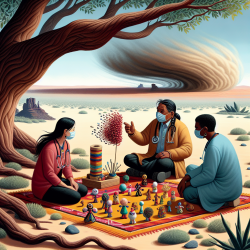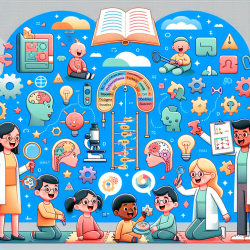The COVID-19 pandemic has highlighted the importance of integrating diverse perspectives into public health strategies. One such perspective comes from the Diné (Navajo) Traditional Knowledge Holders (TKHs), who offer invaluable insights into managing health crises through their cultural lens. This blog explores the key takeaways from the research article "Diné (Navajo) Traditional Knowledge Holders’ Perspective of COVID-19" and suggests how practitioners can enhance their skills by embracing these insights.
Understanding the Diné Perspective
The research conducted by Kahn et al. (2023) delves into the roles and perspectives of Diné TKHs during the COVID-19 pandemic. The study utilized the Hózhó Resilience Model to analyze data from interviews with TKHs, identifying themes such as harmony, spirituality, and respect for self-discipline.
The Hózhó Resilience Model
The Hózhó Resilience Model emphasizes attributes like respect, reciprocity, relationships, discipline, positivity, love, spirituality, and happiness. These cultural lifeways are seen as mechanisms for self-care and empowerment. Practitioners can learn from this model by incorporating these attributes into their own practices to promote holistic wellbeing.
Key Insights for Practitioners
- Incorporate Cultural Contexts: Understanding the social and cultural contexts of health issues is crucial. Practitioners should strive to incorporate traditional knowledge and cultural perspectives into their practice to create more inclusive health responses.
- Engage with Traditional Knowledge Holders: Collaborating with TKHs can provide practitioners with unique insights into community-specific health challenges and solutions. This partnership can enhance trust and communication between healthcare providers and communities.
- Promote Holistic Health Approaches: The Diné perspective emphasizes balance between mind, body, and spirit. Practitioners can adopt holistic approaches that consider these elements to improve patient outcomes.
- Utilize Storytelling: Storytelling is a powerful tool in conveying complex health information. Practitioners can use storytelling techniques to educate patients about health issues in a culturally relevant manner.
Encouraging Further Research
The study highlights the need for further research into the roles of TKHs in public health initiatives. By exploring how traditional knowledge can be integrated into modern healthcare systems, researchers can develop more effective strategies for managing future pandemics.
Practitioners are encouraged to engage with ongoing research efforts and contribute to the growing body of knowledge on integrating traditional perspectives into healthcare. This collaboration will not only enhance their skills but also improve health outcomes for diverse communities.
To read the original research paper, please follow this link: Diné (Navajo) Traditional Knowledge Holders’ Perspective of COVID-19.










